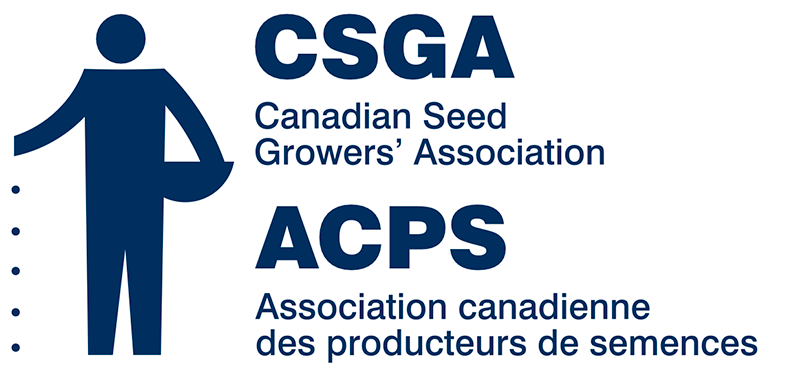Case Studies
Several food processors demand food ingredients made from Certified seed to gain an edge over their competitors. The following examples serve to demonstrate how Certified seed can help your business:
- Helping Beer Taste Fresher, Longer – Sapporo Breweries
- Barley That Makes More Beer: A spotlight on CDC Meredith Barley
- Making A Special Loaf of Bread: Warburton’s Foods experience with Certified seed
- Sunrise Soya Foods: Canada’s leading tofu manufacturer, uses soybeans grown from Certified seed in its tofu and soy food products
- Pavena Certification Program: Purity standards in certified seed allows celiacs to consume oats
Helping Beer Taste Fresher, Longer – Sapporo Breweries
For beer lovers, there’s nothing like cracking open a cold one and enjoying the fresh taste of your favourite brew.
For Sapporo Breweries, makers of Japan’s oldest beer brand, guaranteeing that freshness is vital to winning the allegiance of beer drinkers. And Certified seed plays a key role in delivering that promise.
At the core of Sapporo’s freshness commitment are two Canadian malting barley varieties – CDC PolarStar and CDC PlatinumStar. Both varieties carry a different version of the lipoxygenase gene, found in all barley. When grain of these varieties is made into malt and the malt is used to brew beer, both the flavour and freshness of the end product has a longer shelf life.
“Sometimes when beer is sitting on the shelf for a long time it can taste stale, or like cardboard,” says Aaron Beattie, barley breeder with the Crop Development Centre (CDC) at the University of Saskatchewan. “When you use malt made from barley containing this alternate version of the lipoxygenase gene, that fresh flavour you get in a freshly brewed beer tends to last a lot longer.”
Beattie explains that Sapporo plant breeders identified a unique version of the lipoxygenase gene in wild barley and worked with him and his predecessors at CDC to develop the two varieties that now produce the desired traits. Sapporo holds the exclusive rights to use these varieties for the Japanese beer market.
Certified seed for the varieties is produced by Winnipeg-based CANTERRA SEEDS and grower production contracts are managed by Saskatchewan’s Prairie Malt, creating a closed-loop identity preserved system. This ensures that malt produced for Sapporo by Prairie Malt provides the quality assurance and characteristics the brewery expects from the malt to consistently deliver the extended flavour and freshness its beer drinking customers have come to expect.
“I refer to Certified seed as the delivery mechanism for innovation,” explains Brent Derkatch, CANTERRA SEEDS’ Director of Operations and Business Development. He describes Certified seed as the foundation of a field-to-plate quality assurance system.
“Innovation means different things to different people. Some people see innovation as improved yield or disease resistance, things that are more tangible for a farmer,” explains Derkatch. “For end users such as Sapporo, the quality assurance system creates confidence in the ingredients they are using for their products. It all starts with Certified seed.”
Barley That Makes More Beer – CDC Meredith Barley
A new high-yielding barley variety with the potential to make more beer is grabbing the attention of the malting and brewing industry. With the emergence of CDC Meredith from the barley research pipeline, there is hope the variety can restore some of malting barley’s lost lustre for farmers, help increase supply, and provide added benefits for the malting and brewing industry.
While cautioning that more testing is required, Richard Joy, technical director for Alberta-based Rahr Malting Canada Limited, says early results show the variety has the potential to consistently deliver low protein – under 12 per cent – which is desirable for the brewing industry. “The lower protein provides additional starch which translates into higher brew house yields or a higher number of beers from the same tonnage,” Joy explains.
The new variety is a direct result of Canada’s Certified seed system. A portion of the royalties collected on Certified seed sales is reinvested in plant breeding and innovation at research centres such as the University of Saskatchewan’s Crop Development Centre, the developer of CDC Meredith.
While brewers get more beer, CDC Meredith also gives farmers more barley. Testing shows it yields 13 per cent higher than the current standard. “It’s a win-win situation,” says Todd Hyra of SeCan, the variety distributor. “Farmers get a variety that has stronger field performance and delivers higher yields while end users get the protein levels they’re looking for and more production.”
In 2013, CDC Meredith becomes the key ingredient in a new barley marketing program involving 12 of Alberta’s top barley growers who grow the variety for Rahr Malting and Lagunitas brewery of Petaluma, California. The program allows Lagunitas to source 16,000 tonnes of barley annually from the growers who receive an extra premium if the barley is less than 11 percent protein – a level that allows Lagunitas to produce high-quality beer using less malt.
For more information on CDC Meredith Barley, please contact Todd Hyra at SeCan at (204) 489-9126.
Making A Special Loaf of Bread – Warburton’s Foods
When it comes to food ingredients, few food manufacturers can match the quality assurance and traceability claims of Warburtons, the United Kingdom’s largest independent baker. The company’s commitment to quality breads, bakery products and rolls starts with relationships it’s cultivated with farmers and the required use of Certified seed.
“High quality, premium bread products is Warburton’s business,” says Adam Dyck, Warburton’s Canadian program manager who notes that 50 per cent of the company’s wheat is grown in Canada. “We’re not millers, we’re strictly bakers. In order to achieve this, we require high quality CWRS (Canada Western Red Spring) wheat as part of our grist.”
“We did a lot of research and found out that not all CWRS varieties perform the same in the Warburtons baking process. Specific attributes contribute to shelf life, colour, freshness, and overall appearance of the bread,” explains Dyck. “We know the varieties we’re contracting make that loaf special and stand out from our competition.”
Warburtons also knows these valuable attributes can be lost if preferred varieties are comingled with other wheat. That’s where Certified seed and IP make a difference, says Dyck. “We have selected these varieties for specific reasons and if we didn’t have Certified seed, we wouldn’t know what we were getting. Those excellent bake characteristics that are in our selected varieties would be lost.”
Warburton´s specifies the varieties grown and the optimum protein levels that they require for baking their bread to the correct taste, softness and freshness. By using an IP system that requires Canadian Certified seed, wheat grown for Warburton’s is kept separate from other wheat and grains the farmer grows, is milled separately and provides British consumers with traceability from the final loaves back to Canadian producers’ farms. (Source: www.warburtons.co.uk)
Sunrise Soya Foods
Certified seed and IP systems play key role in Sunrise Soya Foods tofu production
Sunrise Soya Foods is Canada’s largest tofu manufacturer and a leading provider of high-quality, traditional and innovative tofu and soy products.
When it comes to quality assurance, Sunrise CEO Peter Joe explains that identity preserved (IP) systems and Certified seed play important roles in helping the company consistently deliver the high quality products their customers expect.
“We purchase exclusively Canadian-grown soybeans,” says Joe noting that Canadian soybeans have a strong reputation for quality. All the soybeans are grown from Certified seed and produced through IP systems, which guarantees specific varieties are segregated throughout growing, harvesting, storage and transport to ensure Sunrise can utilize unique attributes they provide for specific tofu products.
“Working with IP systems and Certified seed is the right decision for us from a business point of view,” says Joe. “IP provides internal and external advantages in how we make our products and our ability to consistently provide high quality to our customers. Soybeans are the biggest raw material component. Without an IP system there would be a lot more uncertainty and challenges in managing our production process.”
Sunrise services a market that requires tofu to be made from non-GMO soybeans. “IP allows us to pinpoint the soybeans we need for our products. It’s sophisticated and gives us much better control as well as traceability,” says Joe. “From a marketing point of view, we are able to give confidence to consumers and customers that we know what kind of beans we’re using.”
But customers also demand many more attributes in tofu products. Food service customers need Sunrise tofu to perform well in their recipes and presentation, while other customers look for specific taste, texture, colour and mouth feel. Meeting these specific needs has led Sunrise to rely on different soybean varieties to produce specific tofu products.
“Many years ago we just used one bean for all our products, but over the years, with help from the IP program, we’re able to be more specific with respect to attributes like protein, oil, yield and how much moisture the bean picks up during our soaking process,” Joe explains. “It’s very important for us to decide on what soybean variety we are using and be very knowledgeable on that front.”
“The big thing about soybeans and food production is that it is an ongoing, never-ending process. We continue to test, monitor and learn to determine the best soybean varieties to use.” Joe adds. “Sometimes varieties will not perform the same because of weather conditions or a better variety will come along. In our business we have to remain flexible but IP and Certified seed reduces the uncertainty and helps us manage our business.”
PavenaTM Certification Program
The Canadian Celiac Association (CCA) launched PAVENA™ – a trademark program used to identify “pure uncontaminated oats” that people affected by celiac disease can consume with confidence.
Celiac disease is a medical condition in which the absorptive surface of the small intestine is damaged by a substance called gluten. This results in an inability of the body to absorb nutrients – protein, fat, carbohydrates, vitamins and minerals – which are necessary for good health. Through several years of extensive research, the CCA determined that “uncontaminated” oats do not produce a reaction for most people affected by the disease.
The PAVENA™ program is based on the premise of growing pure oats in a manner that eliminates the contamination by offending materials, such as wheat, barley or rye, and manages the product throughout the chain of custody, during preparation. The PAVENA™ system is based upon strict purity standards of pedigreed seed. This ensures that all food products such as rolled oats, breads, baked goods and other snack foods that carry the PAVENA™ label meet the specific food safety requirements that celiacs need.







